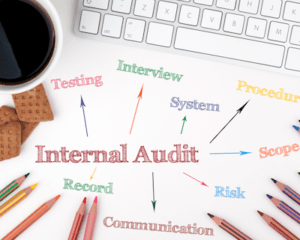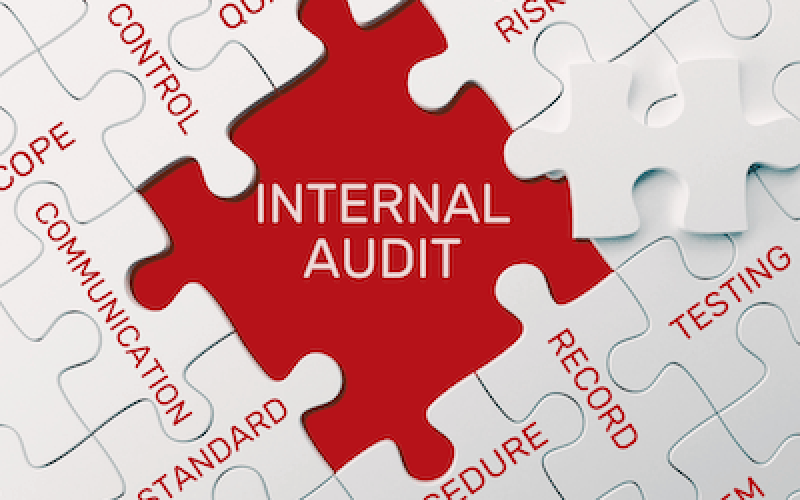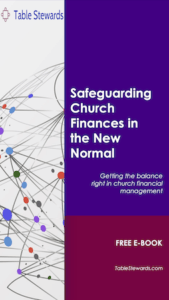Introduction
As a church or charity, you are likely already well aware of the importance of maintaining proper financial records and complying with government regulations.
However, you may not have considered the benefits that internal audits can bring to your organisation.
The charity sector, including churches registered as charities, does not have regulatory requirements that mandates internal audit in charity organisations, unlike the public services sector.
This has meant that only churches and charities that understand the benefit that internal audit brings to the successful achievement of their objectives have embraced internal auditing as part of their assurance mechanisms.
Research in the public sector where internal audit arrangements are required, shows that internal audit is making an impact by focusing on areas that are important for organisations and thereby supporting organisations in achieving their strategic objectives and priorities.
Where internal audits are implemented properly, they can offer your church and charity leadership vital insights, advice and independent assurance on the effectiveness of your operations, which you may not be able to obtain otherwise.
This article takes you through what an internal audit is, how it is performed and the benefits of internal audits to your church or charity.
Table Stewards uses a light-hearted scene setting approach to introduce its topics, but if you would prefer to dive straight into any part of the article, please click the relevant link in the table of contents above.
Scene Setting
The Learning & Development Committee are here again for their pre-meeting with Coach Emmanuel before the masterclass.
Sister Mary: What is all this I am hearing about procuring an internal audit service contract? Is there some fraud going on that we have not heard about?
Sister Jane: I am also curious to know what is going on. What do we need internal audit for?
Elder Sam: Hmm! I heard that the board wants to know whether all our operations are working well and how we can improve and achieve better outcomes. That can’t be a bad idea!
Brother Badtrus: You don’t need those witch-hunters called auditors to tell you whether you are doing well. They just find faults in everything to justify their existence!
Elder Sam: That is not right. Internal audits help you know how well you are managing your operations and show you where you can improve. It’s like going to the doctor for a health check even when you don’t feel any obvious health issue. It can throw up early warning signs that need attention to help save your health.
Coach Emmanuel: Indeed! Internal auditors are critical friends, not witch-hunters. Internal audits give you comfort and assurance on how effective and efficient your operations are. Internal audit advice and recommendations help organisations improve and become more successful in achieving their objectives. You all need to understand what internal audit is all about and what benefit it brings. Come along to the masterclass!
What is Internal Audit?
An internal audit is an independent, objective evaluation of an organisation’s activities. It helps organisations to identify and correct problems, improve their operations, and protect their assets.
An internal audit will evaluate:
- how well your church or charity is managing its risks,
- how effective and adequate your internal controls are, and
- how effective the leadership or governance is,
so that your church or charity can successfully achieve its goals.
The primary objective of internal audits is to provide assurance, advice and insights, rather than specifically to detect fraud. However, in the process of an internal audit, fraud should be detected where it is going on.
Note that internal audits are carried out by independent persons who do not run the daily operations of your church or charity, so that the assurance they provide can be objective, reliable and unbiased.
These could be persons employed by your church or charity as internal auditor(s), a contracted internal audit service or a combination of both.
Internal audit is a profession and internal auditors require specific professional skills and qualifications to perform their roles.
How does Internal Audit differ from External or Financial Statement audits?
Internal audit is an independent and objective evaluation of whether an organisation’s risk management, governance and internal controls are operating effectively.
The goal of an internal audit is to provide independent assurance and help the organisation improve its operations and mitigate its risk so that it can achieve it objectives.
Internal audits evaluate all of an organisation’s controls, including financial, operational, and compliance controls.
Internal audit also provides valuable advice to ward off risks, for example, by giving advice on internal controls to be designed into new systems and processes.
External audits or financial statement audits are conducted by external auditors and focus on whether the organisation’s financial statements are accurate.
External audits also assess internal controls, but they are not as comprehensive as internal audits.
How are internal audits conducted?
The first step in the internal audit process is determining what to audit.
This is usually done by creating a plan of internal audits covering various aspects of your church or charity operations.
But how do you determine what to include?
The most effective internal audits focus on the risks that an organisation faces, where it needs assurance on how effectively the risks are being managed. This is because poor risk management can derail success.
The internal audit plan covers a variety of identified audit areas to take place over a period of time, usually a year.
Each of these audits then need to be scheduled, scoped and carried out.
There are four main steps in conducting an internal audit:
- Planning – This involves setting the scope and objectives of the audit, and determining which areas will be covered and the tests to carry out.
- Testing – This involves reviewing documents and records, interviewing staff, and observing processes to assess whether they are working effectively.
- Reporting – This involves communicating the findings of the audit to senior management, and making recommendations for improvements where necessary.
- Follow-up – This involves following up on the audit recommendations to ensure that they have been implemented.

What are the Benefits of Internal Audits?
Let’s look at 5 benefits that internal audits can provide to your church or charity.
Benefit 1 – Helps improve your Internal Controls
Internal audits play an important role in identifying potential risks and vulnerabilities, and recommending corrective action to improve internal controls in your church or charity.
This can help safeguard your finances and assets from misuse, and can help prevent fraud and error, while ensuring compliance with relevant laws and regulations.
Internal audits focussed on the risks faced by your church or charity should help ensure that you have the right internal controls in place to mitigate the risks and operate effectively.
For example, an internal audit of income could assess how effectively you are managing the risks of inaccurate accounting, error, waste, data breaches, theft and fraud.
Additionally, any risks of missed opportunities, such as not taking full advantage of tax reclaims for charities, can also be assessed.
Any internal control weaknesses are identified with recommendations on how to address them.
Addressing the recommendations then gives you assurance and comfort that your church or charity is effectively and efficiently managing its income.
Benefit 2 – Helps improve your risk management processes
Internal audits are best focussed on gaining assurance that risks are being effectively mitigated and that appropriate internal controls are in place.
But how do you know that the real risks are being identified?
An internal audit can help evaluate the effectiveness of your church or charity’s risk management process.
This includes reviewing the processes and procedures used to identify and manage risks, as well as assessing whether or not these processes are adequate.
Having the right risk management processes in place will help ensure that your church or charity is identifying, assessing and mitigating the real risks to the achievement of your objectives.
Managing the real risks ensures that you stand the best chance of successfully achieving your church or charity’s mission and objectives.
Benefit 3 – Helps improve compliance with your policies and processes
An internal audit can help assess whether your church or charity is adhering to its own policies and procedures.
This is termed a compliance audit and typically involves the auditor reviewing the transactions and records for the activity being assessed, interviewing staff and other operatives, to determine whether the policy and processes are being followed.
Let’s take purchases as an example.
The auditor will identify the key aspects of your church or charity’s purchasing policy and procedures and assess a sample of transactions and records against the requirements.
They will determine the extent of compliance and any breaches that need to be addressed.
The quality of the policies and processes will determine how much value you get from compliance audits.
Compliance audits are also suited to assessing whether your church or charity is complying with relevant laws and regulations such as data protection.
Typically, compliance internal audits should form a part of the wider internal audit plan alongside risk-based internal audits, for maximal benefit to your church or charity.
Benefit 4 – Serves as a Critical Friend to your Board and Senior Leadership
Internal audit serves as a critical friend to your church or charity leadership.
A tailored programme of internal audits can provide valuable feedback to your church or charity’s Board of Trustees or Directors about the effectiveness and efficiency of your operations.
It does this while also identifying potential risks and internal control issues that you need to address.
Internal audit reports contain independent opinions, insights and recommendations that together help provide a picture of how effective and efficient your operations are.
This helps give assurance to your board and leaders on how your governance is working and where to focus attention to further mitigate risks and strengthen controls. It also promotes transparency and accountability.
An ongoing dialogue with internal audit is a crucial part of governance that provides comfort, challenge and advice to boards and executive leadership in a way that would otherwise not exist.
Embrace internal audit as your critical friend!
Benefit 5 – Helps engender Trust with Givers
Givers are more encouraged to give to your church or charity where they have assurance that the funds are being used efficiently and effectively.
One way that provides such assurance is through demonstrating that your church or charity actively carries out internal audits to ensure that risks to finances and assets are effectively managed.
By showing that your leadership culture embraces, promotes and values internal audit, and takes action to continuously improve and derive best value, givers and stakeholders gain comfort and encouragement to continue to give in support of your good causes.
Do internal audits have any limitations?
Internal audits can be extremely beneficial for churches and charities, but there are also some limitations to consider.
First and foremost, internal audits require time and allocated resources to plan and properly execute them. This can be challenging for smaller organisations with limited staff and budgets.
Additionally, internal audits can sometimes be seen as confrontational or adversarial, which can lead to tension between the audit team and the part of the organisation being audited.
A good understanding of the value of internal audit, as protecting both the organisation and the operatives, can help mitigate an adversarial approach.
Finally, it’s important to remember that an internal audit is only one tool in the larger risk management and governance framework.
It plays a significant part in providing assurance, advice and insight but only within the scope of what it examines, hence should not be relied upon exclusively as the only source of assurance.
Conclusion
Overall, internal audits are very beneficial in providing independent assurance, advice and insight that can help churches and charities achieve greater success and run more efficiently and effectively.
Every church or charity should consider internal audit as part of their governance, risk and assurance framework, and as a vital critical friend in their toolbox for success.
Read more of our articles:
- why churches need good internal controls,
- How to prevent internal control failure in churches and charities
- why risk management is necessary in churches and charities ,
- 6 Steps to risk management in churches and charities
- Good governance in church administration – 9 areas to get right








